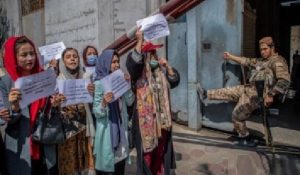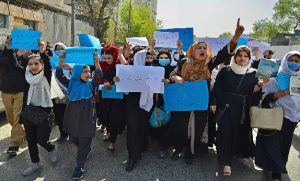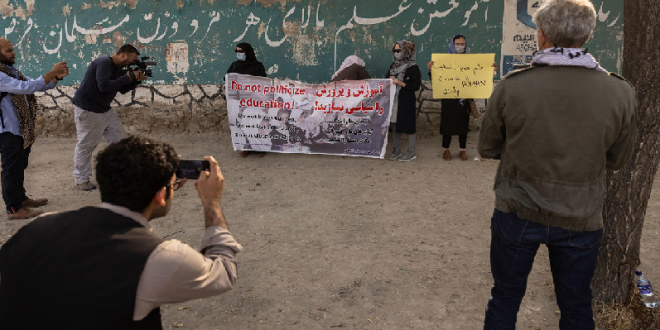02-04-2024
Bureau Report + Agencies
KABUL/ ISLAMABAD: Spring has arrived in Afghanistan, and Afghan children have returned to their schools to begin a new academic year. Girls beyond the 6th grade across much of the country, however, are still unable to pursue an education and remain unsure what the future holds for them.
Two years ago, on a spring day like today, the hopes and dreams of Afghan schoolgirls were crushed by the Taliban’s interim government.
 On March 21, 2022, the Taliban promised to reopen all schools in Afghanistan, seemingly ending the temporary ban it had placed on girls attending secondary school since its return to power seven months earlier.
On March 21, 2022, the Taliban promised to reopen all schools in Afghanistan, seemingly ending the temporary ban it had placed on girls attending secondary school since its return to power seven months earlier.
Two days later, while many girls were enthusiastically preparing to return to school, the authorities reversed the decision and restricted girls over the age of 12 from attending state-run schools. In an apparent attempt to soften the blow, the Ministry of Education said the closure would be temporary and schools would be reopened once it put in place policies that would ensure compliance with “principles of Islamic law and Afghan culture”.
Six months later, with no plan in place to reopen secondary schools to girls in the foreseeable future, the government issued a new edict and banned girls and young women in Afghanistan from higher education.
This move prompted countless analysts and experts around the world, including myself, to invite Taliban leaders to rethink their decision. We pointed out that “depriving Afghan women of an education would benefit no one” and these anti-education edicts actually stand against the very foundations of Islam.
Regrettably, the Taliban did not listen. This March, exactly two years after the supposedly temporary ban on girls attending secondary schools and universities, another academic year in Afghanistan began without the presence of women and girls.
 The hopes and dreams of teenage girls, who believed the ban on their education was indeed “temporary” and they would return to their classrooms once the conditions were “right”, have likely begun to fade away.
The hopes and dreams of teenage girls, who believed the ban on their education was indeed “temporary” and they would return to their classrooms once the conditions were “right”, have likely begun to fade away.
As we enter the last week of Ramadan, it is a good moment to reflect on the importance of not reneging on a promise. Those leaders who claim to execute the Divine Will have the responsibility of fulfilling the promise made to millions of innocent Afghan schoolgirls who find themselves oppressed and deprived of their God-given right to an education.
The Taliban’s stance on this issue defies both worldly and religious logic.
The recent edict to ban women from higher education in Afghanistan is not only a blow to those directly affected but to all of Afghan society because it further erodes the little hope for progress remaining in the country. The order was issued at a time when people were hoping for a reversal of another Ministry of Education edict issued in March that stopped girls from attending state-run secondary schools.
Such an indispensable, fundamental right as the right to education being put on hold for half the population exemplifies how much the internal tug of war between competing Taliban factions can harm Afghanistan. Indeed, these most recent limitations on women’s participation in Afghan society are just the latest consequences of the regrettable competition between those in the Taliban who know “where the shoe pinches” and have reflected on the complexities of 20 years of conflict and those who are removed from the realities of the people and cannot see past perceived ideological gains.
 Pressmediaofindia
Pressmediaofindia




